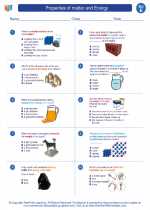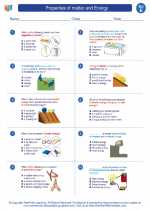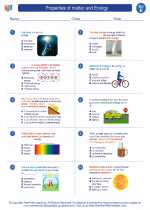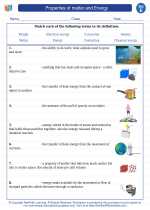Properties of matter and Energy -> oxidation
What is Oxidation?
Oxidation is a chemical reaction in which a substance loses electrons. This can occur through the addition of oxygen or through the loss of electrons to another substance.
Oxidation in Everyday Life
Oxidation is a common process in everyday life. It can be seen in the rusting of iron, the browning of fruit, and the burning of fuel. These processes all involve the loss of electrons by the substances involved.
Oxidation and Energy Production
Oxidation reactions are essential for the production of energy in living organisms. For example, in cellular respiration, glucose is oxidized to produce energy in the form of ATP.
Oxidation and Reduction
Oxidation is often paired with reduction, which is the opposite process involving the gain of electrons. These two processes occur simultaneously in many chemical reactions.
Examples of Oxidation
Some common examples of oxidation include the combustion of fuels, the tarnishing of silver, and the fermentation of wine.
Applications of Oxidation
Oxidation reactions have many practical applications, such as in the production of metals, the treatment of wastewater, and the generation of electricity in batteries.
.◂Science Worksheets and Study Guides Fifth Grade. Properties of matter and Energy

 Worksheet/Answer key
Worksheet/Answer key
 Worksheet/Answer key
Worksheet/Answer key
 Worksheet/Answer key
Worksheet/Answer key
 Vocabulary/Answer key
Vocabulary/Answer key
 Vocabulary/Answer key
Vocabulary/Answer key
